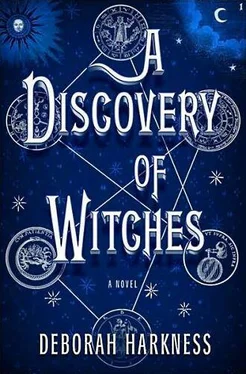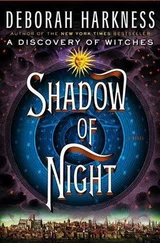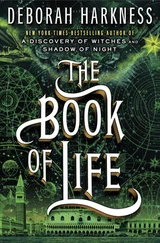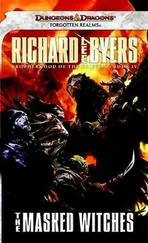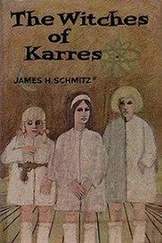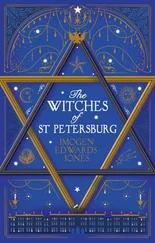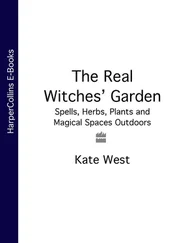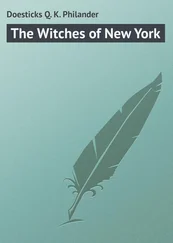Push the bewitched volume aside and walk away?
Sarah would chortle with delight if she knew my predicament. She had always maintained that my efforts to keep magic at arm’s length were futile. But I’d been doing so ever since my parents’ funeral. There the witches among the guests had scrutinized me for signs that the Bishop and Proctor blood was in my veins, all the while patting me encouragingly and predicting it was only a matter of time before I took my mother’s place in the local coven. Some had whispered their doubts about the wisdom of my parents’ decision to marry.
“Too much power,” they muttered when they thought I wasn’t listening. “They were bound to attract attention—even without studying ancient ceremonial religion.”
This was enough to make me blame my parents’ death on the supernatural power they wielded and to search for a different way of life. Turning my back on anything to do with magic, I buried myself in the stuff of human adolescence—horses and boys and romantic novels—and tried to disappear among the town’s ordinary residents. At puberty I had problems with depression and anxiety. It was all very normal, the kindly human doctor assured my aunt.
Sarah didn’t tell him about the voices, about my habit of picking up the phone a good minute before it rang, or that she had to enchant the doors and windows when there was a full moon to keep me from wandering into the woods in my sleep. Nor did she mention that when I was angry the chairs in the house rearranged themselves into a precarious pyramid before crashing to the floor once my mood lifted.
When I turned thirteen, my aunt decided it was time for me to channel some of my power into learning the basics of witchcraft. Lighting candles with a few whispered words or hiding pimples with a time-tested potion—these were a teenage witch’s habitual first steps. But I was unable to master even the simplest spell, burned every potion my aunt taught me, and stubbornly refused to submit to her tests to see if I’d inherited my mother’s uncannily accurate second sight.
The voices, the fires, and other unexpected eruptions lessened as my hormones quieted, but my unwillingness to learn the family business remained. It made my aunt anxious to have an untrained witch in the house, and it was with some relief that Sarah sent me off to a college in Maine. Except for the magic, it was a typical coming-of-age story.
What got me away from Madison was my intellect. It had always been precocious, leading me to talk and read before other children my age. Aided by a prodigious, photographic memory—which made it easy for me to recall the layouts of textbooks and spit out the required information on tests—my schoolwork was soon established as a place where my family’s magical legacy was irrelevant. I’d skipped my final years of high school and started college at sixteen.
There I’d first tried to carve out a place for myself in the theater department, my imagination drawn to the spectacle and the costumes—and my mind fascinated by how completely a playwright’s words could conjure up other places and times. My first few performances were heralded by my professors as extraordinary examples of the way good acting could transform an ordinary college student into someone else. The first indication that these metamorphoses might not have been the result of theatrical talent came while I was playing Ophelia in Hamlet. As soon as I was cast in the role, my hair started growing at an unnatural rate, tumbling down from shoulders to waist. I sat for hours beside the college’s lake, irresistibly drawn to its shining surface, with my new hair streaming all around me. The boy playing Hamlet became caught up in the illusion, and we had a passionate though dangerously volatile affair. Slowly I was dissolving into Ophelia’s madness, taking the rest of the cast with me.
The result might have been a riveting performance, but each new role brought fresh challenges. In my sophomore year, the situation became impossible when I was cast as Annabella in John Ford’s ’Tis Pity She’s a Whore. Like the character, I attracted a string of devoted suitors—not all of them human—who followed me around campus. When they refused to leave me alone after the final curtain fell, it was clear that whatever had been unleashed couldn’t be controlled. I wasn’t sure how magic had crept into my acting, and I didn’t want to find out. I cut my hair short. I stopped wearing flowing skirts and layered tops in favor of the black turtlenecks, khaki trousers, and loafers that the solid, ambitious prelaw students were wearing. My excess energy went into athletics.
After leaving the theater department, I attempted several more majors, looking for a field so rational that it would never yield a square inch to magic. I lacked the precision and patience for mathematics, and my efforts at biology were a disaster of failed quizzes and unfinished laboratory experiments.
At the end of my sophomore year, the registrar demanded I choose a major or face a fifth year in college. A summer study program in England offered me the opportunity to get even farther from all things Bishop. I fell in love with Oxford, the quiet glow of its morning streets. My history courses covered the exploits of kings and queens, and the only voices in my head were those that whispered from books penned in the sixteenth and seventeenth centuries. This was entirely attributable to great literature. Best of all, no one in this university town knew me, and if there were witches in the city that summer, they stayed well away. I returned home, declared a major in history, took all the required courses in record time, and graduated with honors before I turned twenty.
When I decided to pursue my doctorate, Oxford was my first choice among the possible programs. My specialty was the history of science, and my research focused on the period when science supplanted magic—the age when astrology and witch-hunts yielded to Newton and universal laws. The search for a rational order in nature, rather than a supernatural one, mirrored my own efforts to stay away from what was hidden. The lines I’d already drawn between what went on in my mind and what I carried in my blood grew more distinct.
My Aunt Sarah had snorted when she heard of my decision to specialize in seventeenth-century chemistry. Her bright red hair was an outward sign of her quick temper and sharp tongue. She was a plain-speaking, no-nonsense witch who commanded a room as soon as she entered it. A pillar of the Madison community, Sarah was often called in to manage things when there was a crisis, large or small, in town. We were on much better terms now that I wasn’t subjected to a daily dose of her keen observations on human frailty and inconsistency.
Though we were separated by hundreds of miles, Sarah thought my latest attempts to avoid magic were laughable—and told me so. “We used to call that alchemy,” she said. “There’s a lot of magic in it.”
“No, there’s not,” I protested hotly. The whole point of my work was to show how scientific this pursuit really was. “Alchemy tells us about the growth of experimentation, not the search for a magical elixir that turns lead into gold and makes people immortal.”
“If you say so,” Sarah said doubtfully. “But it’s a pretty strange subject to choose if you’re trying to pass as human.”
After earning my degree, I fought fiercely for a spot on the faculty at Yale, the only place that was more English than England. Colleagues warned that I had little chance of being granted tenure. I churned out two books, won a handful of prizes, and collected some research grants. Then I received tenure and proved everyone wrong.
More important, my life was now my own. No one in my department, not even the historians of early America, connected my last name with that of the first Salem woman executed for witchcraft in 1692. To preserve my hard-won autonomy, I continued to keep any hint of magic or witchcraft out of my life. Of course there were exceptions, like the time I’d drawn on one of Sarah’s spells when the washing machine wouldn’t stop filling with water and threatened to flood my small apartment on Wooster Square. Nobody’s perfect.
Читать дальше
